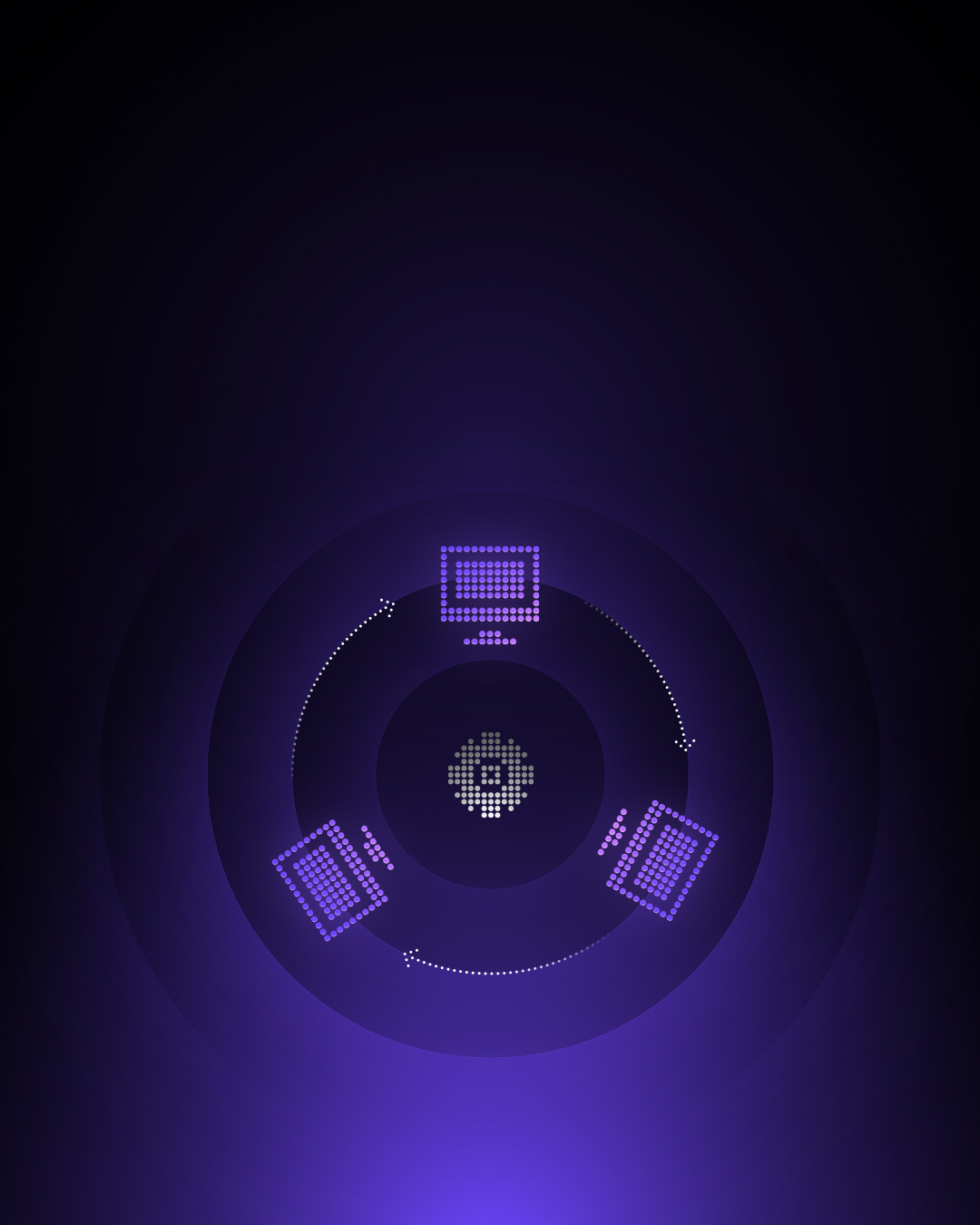
The biggest rugpull in history won’t be a token– it’ll be overlooking privacy. Everything blockchain promises– freedom, autonomy, equitable economies, community-driven governance—will mean nothing without it.
We are now in an advanced era of blockchain computing, characterized by the consolidation of foundational layers being stable and ubiquitous. Consensus mechanisms are highly scalable, performance is improving exponentially, and interoperability is becoming more refined. These core building blocks bolster adoption-readiness, empowering developers with tooling that abstracts infrastructure considerations away, enabling them to focus exclusively on building applications people want.
As Chris Dixon says in his renowned book titled Read, Write, Own he explains, "A key moment will be when infrastructure becomes good enough that application developers no longer need to think about infrastructure." However, one core layer is missing. The literal 'dark' horse of blockchains that will solidify the decentralized computing revolution: privacy.
Privacy is non-negotiable
Privacy is a cornerstone of human dignity and autonomy, vital for preserving freedoms like speech and association. It creates a personal space free from constant oversight, enabling individuals to think, express, and act without fear of surveillance. Privacy is not just a personal right but a societal necessity, underpinning the health of a free and open society. As blockchain computing infrastructure reaches adoption-ready maturity, it coincides with other technological advancements like AI.
We stand at a pivotal crossroads, where privacy infrastructure is the missing layer of the blockchain tech stack essential to unlocking the full potential of decentralized systems. It also enables new applications that require confidentiality to exist like e.g dark pools, games with hidden state, and personalized AI forging crypto’s new whitespace. Without robust privacy solutions, we risk turning these powerful technologies into tools of surveillance rather than liberation, undermining the very principles they aim to uphold. This makes integrating privacy technologies a technical challenge and a moral imperative for the future of decentralized systems.
Solana's Journey as the Dark Horse
Solana stands at the forefront of blockchain adoption. Despite market volatility and challenges, it has showcased remarkable adaptability and resilience, fostering a thriving developer ecosystem. Coupled with strong institutional and community backing, Solana has survived industry-wide downturns and emerged as the dark horse of L1's, positioned to drive mainstream adoption and innovation.
Solana's journey as the dark horse mirrors the trajectory of privacy itself—underrated and often misunderstood. Just as Solana overcame skepticism to establish itself as a leader through relentless innovation, privacy now stands poised for its own renaissance within this ecosystem and beyond.
The History of Privacy on Solana
Privacy has faced numerous challenges in the blockchain ecosystem—from its technological complexity to its regulatory complications to simply being an abstract topic users overlook. Solana is no exception. Early efforts sought to integrate privacy through novel mechanisms, such as shielded transactions and Zero-Knowledge Proofs (ZKPs). Projects like Otter Cash, Light Protocol, and Elusiv gained traction among privacy advocates for their attempts to bring confidential transactions to Solana, yet these applications never came to full fruition. Recently, Solana covered zk, verifiability and privacy on Solana in an X thread and their current state. Below, we have focused on summarizing the privacy-focused projects, past and present.
Otter Cash
Otter Cash was one of the earliest projects, starting in early 2022, bringing privacy and confidentiality to Solana. Otter was an anonymous transaction protocol, breaking the link between source and destination address with zero-knowledge proofs. However, the team behind Otter Cash pivoted to building Renegade on Arbitrum, a dark pool built with Secure Multi-Party Computation (MPC).
Light protocol
Like Otter Cash, Light Protocol enabled private on-chain transactions with zero-knowledge proofs. However, the team pivoted in early 2024, repurposing their ZK foundation and applying it to scaling. Light now focuses on ZK Compression, allowing developers to store arbitrary data on Solana at a highly cost-effective rate. Although significant, Light's tech is no longer concentrated on privacy but instead on scalability.
Elusiv
Elusiv (developed by our team at Arcium) was an application-layer privacy solution that provided users with an array of privacy features aimed at protecting their on-chain privacy. From private transactions similar to Light and Otter to more advanced features like Private Swaps and SDK, Elusiv enabled user—and developer-friendly on-chain privacy. Furthermore, Elusiv was developing a decentralized compliance solution called ZEUS (Zero-Knowledge Encrypted User-Safeguarding), focused on mitigating the regulatory pressure facing many privacy protocols.
Darklake
Still under development, Darklake represents a future application-level privacy solution on Solana. Darklake is building a confidential AMM, aiming to bring confidential swaps to Solana with MEV-resistant order execution.
Despite these projects' promise, there is a clear pattern: The majority of teams building privacy-focused applications pivoted in another direction or left the ecosystem entirely. Why?
Why These Solutions Never Gained Widespread Traction
The lack of widespread traction for privacy solutions on Solana (and other ecosystems) can be attributed to several factors:
- The user experience was often overly complex, requiring technical knowledge or additional steps that deterred adoption.
- These solutions often operated in silos, lacking the seamless integration with the broader ecosystem that developers and users demanded.
- There was a perception issue: privacy was seen as optional rather than essential, making it harder for these solutions to attract the necessary investment and community support to thrive.
- Privacy Enhancing Technologies (PETs) were not mature enough, presenting a significant tradeoff in performance and usability.
Cypherpunks and privacy enthusiasts flocked to utilize the power of these applications, but the average developer and user did not consider them top of mind.
These challenges revealed a more profound truth: privacy could not be treated as an add-on, feature, or entirely separate application. Instead, it needed to be a foundational layer of the blockchain tech stack, enabling developers, applications, organizations, and various use cases to access general-purpose and programmable privacy tooling.
The Advent of Decentralized Confidential Computing (DeCC) on Solana
Enter Arcium, the encrypted supercomputer. Arcium leverages cutting-edge cryptography (specifically MPC) to enable any computation to be executed on fully encrypted data. This means developers can define any logic in their Solana programs to be executed in an entirely encrypted state. Arcium sets an incredible precedent, one that opens a completely new design space for core verticals:
DeFi protocols like Jupiter, Raydium, Orca, Kamino, Drift, and others can leverage Arcium to build powerful new features that secure users' data. From dark pools to private lending and borrowing, DeFi can finally become the world's financial rails.
On-chain games can now have hidden-in game logic that does not cause performance bottlenecks. Genopets, Star Atlas, and traditional casino games like Blackjack and Poker can finally be realized in a decentralized setting.
DePIN could use Arcium for data provisioning, empowering physical resource networks like wireless, supply chains, and more to unlock insights from sensitive data.
AI models can be trained on encrypted data, expanding data diversity for AI development while preserving data integrity and privacy. The AI revolution can come to full fruition with privacy and security in mind.

As a stateless computational network, Arcium is hyper-optimized to deliver performant, trustless, and decentralized confidential computing (DeCC). Similar to Render Network or io.net, Arcium provides encrypted computing power through a permissionless set of nodes. Furthermore, Arcium's recent acquisition announcement of its biggest Web2 competitor makes it the most advanced DeCC stack optimized for supporting end-to-end encrypted AI— from training encrypted models to performing encrypted inferences with explainable AI. It also lays the foundation for AI Agents and personalized LLMs to be trained on encrypted data sets, securing sensitive data and its sources.
Looking Ahead
The privacy rebirth on Solana comes at a pivotal moment for blockchain technology. PETs are mature enough to advance rather than limit blockchain usability. The recent rulings on Tornado Cash begin to bring more clarity to the regulatory landscape surrounding PETs. AI brings new, complex implications for privacy and security that will determine the future of digital interaction.
As Solana continues to evolve, integrating privacy into its core infrastructure with powerful tooling will empower developers to create applications that uphold the fundamental pillars of decentralization, autonomy, and freedom while creating new opportunities for developers and founders to build novel applications. With the advent of Arcium, Solana is not merely adopting privacy—it is unlocking blockchain's transformative potential to redefine digital sovereignty, rebuild trust, and complete the foundation for an equitable and borderless digital economy.
Stay updated
Arcium is heading into an exciting testnet phase. Stay updated on Arcium’s development and join our community by following us on X and joining our Discord. Dive into Arcium’s stack by reading our docs.
.svg)










.svg)




.svg)

























.jpg)





.jpg)

